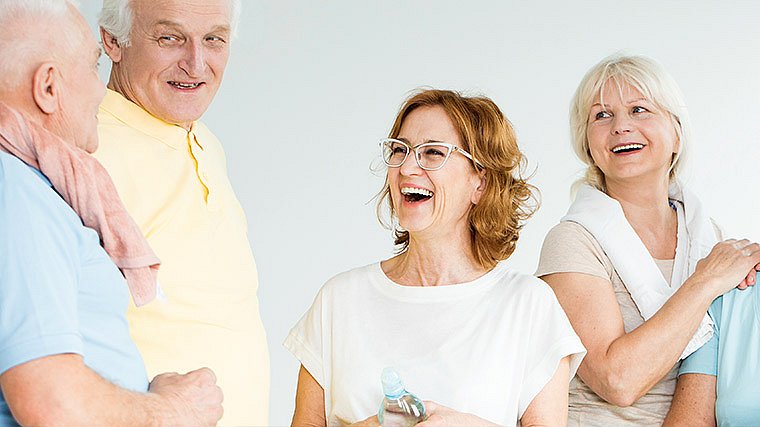How have we used the time that has been given to us? How are we going to use the time we have left? The way we reflect on and evaluate this ‘balance of gains and losses’ strongly influences our perceptions, well-being, and general functioning. In addition, it impacts our biological, social, and psychological health.
What does old age entail?
During the life stage called old age – or late adulthood – people are faced with diverse and sometimes completely new challenges. Of course, it involves further personal growth and life wisdom arising both from the life baggage we carry and the wealth of experience, as well as our individual perception of the current reality.
Aging is an irreversible, inevitable, and prolonged physiological process. It progressively affects people’s life and its symptoms increase with each passing year. The effects of late adulthood include deterioration of mental and somatic health, and declining motor function. The elderly are slower at performing tasks and processing new information, focusing attention and multitasking, memory processes and problem-solving. Adapting to and embracing these changes is a time-consuming process, and it doesn’t happen overnight.
The way various situations are handled during this time depends on a number of factors. It is influenced by personality factors, ways of coping with stress, support from relatives, ability to fall back on one’s own resources when going through a rough patch, and, of course, the overall health status.
Diseases of late adulthood
The most common somatic diseases occurring in the elderly population include:
- cardiovascular diseases,
- musculoskeletal diseases,
- overweight or obesity,
- endocrine system disorders.
Problems with sleep, as well as attention and memory disorders, are equally common. The aging process can lead to the development or exacerbation of mental health problems. A common condition is depression, which also entails poor attention and impaired memory. CAT scan reveals that a certain structure in the brain called the hippocampus is reduced in size. The hippocampus is known to be involved in memory, learning, and processing of emotions.

There is a growing body of evidence for links between hippocampal function and various disorders including depression, epilepsy, and Alzheimer’s disease. Dementia disorders, which include the latter and frontotemporal dementia, are particularly closely linked to the body’s ageing processes. In addition to memory disorders, elderly people may experience behavioral changes, apathy, irritability, emotional instability, and speech disorders.
Anxiety disorders, which often co-occur with depression, are another common mental health issue. They manifest themselves as sleep disorders as well as faster heartbeat, digestive problems, headaches, back pain or increased muscle tension. Impaired consciousness, including problems with responsiveness and awareness of the environment, are equally common in late adulthood.
What improves the quality of life in elderly people?
Old age is a time when many changes take place in the human body. The overall quality of physical and mental health is declining. Unfortunately, a number of mental illnesses or disorders can significantly affect elderly people’s health and well-being, and thus markedly impair their level of functioning. However, the quality of life may be improved through physical activity as well as mental acuity and social interactions.
The World Health Organization highlights that seniors who take care of their health and relationships are far less likely to experience discomfort related to health issues. They are less frequently afflicted by diseases, and experience fewer complaints related to their physical and mental condition.
It is crucial to watch for changes in behavior and symptoms related to lowered mood. If they occur, the faster and stronger the response (such as seeking support from a specialist, if necessary), the more likely it is that symptoms can be eliminated altogether or at least their progression can be slowed.
Knowing this, let’s take good care of ourselves and our senior loved ones, so that the focus is always firmly on mindfulness and a healthy dose of physical activity.

